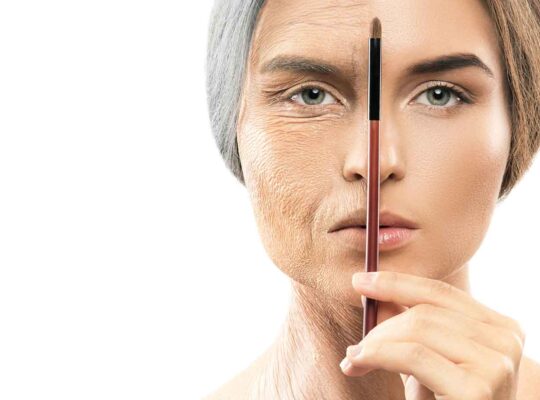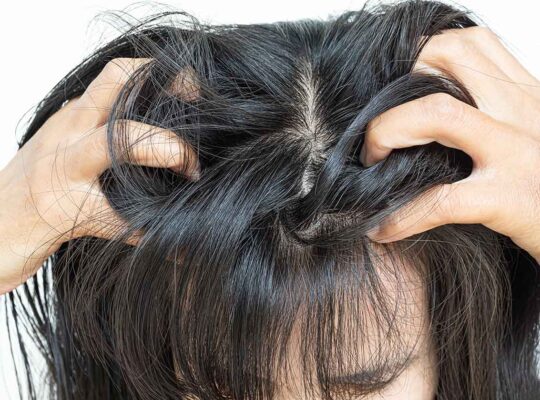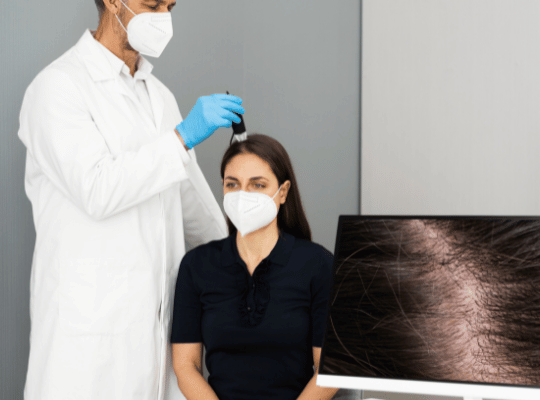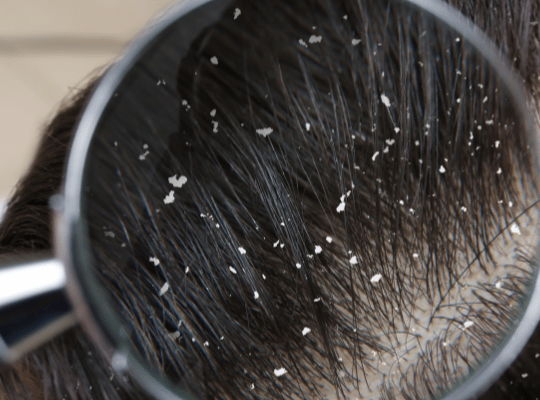Why Is Your Hair Falling Out?
Have you ever noticed extra hair in your brush or on your pillow and wondered if something might be wrong? Hair loss is a common concern that affects many people at different stages of life. While it’s normal to lose some hair every day, there are times when hair loss can be a sign of something more serious. Let’s explore the common causes of hair loss, when it might signal an underlying health condition, and what you can do about it.
Common Causes of Hair Loss
Androgenetic Alopecia (Male and Female Pattern Baldness)
One of the most common causes of hair loss is androgenetic alopecia, better known as male or female pattern baldness. This type of hair loss is linked to genetics and hormones and tends to follow a recognizable pattern—thinning at the temples and crown in men, and a general thinning across the top of the head in women. While androgenetic alopecia is usually not serious in terms of health, it can significantly impact self-esteem and confidence.
Stress-Related Hair Loss (Telogen Effluvium)
Telogen effluvium is a type of hair loss that happens when your body experiences significant stress, whether physical or emotional. This condition causes hair to enter the resting phase (telogen) prematurely, leading to diffuse thinning across the scalp. The good news is that telogen effluvium is often temporary, and your hair may regrow once the stressor is resolved. However, persistent stress-related hair loss could signal the need for lifestyle changes or medical intervention.
Nutritional Deficiencies
Your diet plays a crucial role in maintaining healthy hair. Nutritional deficiencies—such as low levels of iron, zinc, or biotin—can lead to hair thinning and loss. If your body isn’t getting the nutrients it needs, your hair follicles may struggle to produce strong, healthy hair. This type of hair loss can often be reversed with proper nutrition and, in some cases, supplements.
Hormonal Changes
Hormones can greatly affect your hair’s health. Hormonal changes due to pregnancy, menopause, thyroid disorders, or even the use of birth control pills can trigger hair loss. For example, many women experience hair thinning after giving birth, a condition known as postpartum alopecia. While this is usually temporary, other hormonal imbalances, like those caused by thyroid issues, may require medical treatment.
When Hair Loss May Signal Serious Conditions
Autoimmune Disorders
Hair loss can sometimes be a warning sign of an autoimmune disorder—conditions where your immune system mistakenly attacks your own body.
- Alopecia Areata: This condition causes sudden, patchy hair loss and occurs when the immune system targets hair follicles. While the hair may grow back on its own, alopecia areata can sometimes be linked to other autoimmune disorders.
- Lupus: Lupus is another autoimmune disorder that can cause hair loss, along with symptoms like joint pain, fatigue, and skin rashes. Hair loss in lupus patients may be diffuse or can appear in patches.
- Thyroid Disorders: Both hypothyroidism and hyperthyroidism can lead to hair thinning or hair loss. The thyroid gland plays a crucial role in regulating metabolism, and imbalances in thyroid hormones can disrupt the normal cycle of hair growth.
Scalp Infections
Infections on the scalp can also cause hair loss.
- Fungal Infections: Conditions like tinea capitis (scalp ringworm) cause patchy hair loss accompanied by redness, itching, and scaling. This type of infection is contagious and needs prompt treatment with antifungal medications.
- Bacterial Infections: Bacterial infections can lead to folliculitis, an inflammation of the hair follicles, which can cause hair to fall out. These infections often require antibiotics for treatment.
Medications and Treatments
Certain medications and medical treatments can cause hair loss as a side effect.
- Chemotherapy: One of the most well-known side effects of chemotherapy is hair loss. This happens because chemotherapy drugs target rapidly dividing cells, which includes those in hair follicles. Hair usually grows back after treatment ends, but the experience can be distressing.
- Certain Medications: Medications such as those used for cancer, arthritis, depression, heart problems, and high blood pressure can all contribute to hair loss. Drugs like thiopurines can also cause hair to thin as a side effect.
Genetic Disorders
Some rare genetic disorders can also lead to hair loss.
- Mutations in Specific Genes: Certain genetic mutations, like those in the Lama3 gene, can cause hair loss. These genetic conditions often involve other serious health issues, and hair loss may be just one of many symptoms.
Common Types of Hair Loss and Their Characteristics
| Type of Hair Loss | Characteristics | Potential Seriousness |
|---|---|---|
| Androgenetic Alopecia | Gradual thinning, typically following a pattern | Generally not serious, but may impact self-esteem |
| Alopecia Areata | Sudden, patchy hair loss | Can be a sign of autoimmune disorder |
| Telogen Effluvium | Diffuse thinning, often temporary | Usually not serious, but may indicate high stress or nutritional deficiencies |
| Scarring Alopecia | Permanent hair loss with scarring | Can be a sign of serious skin conditions or infections |
| Traction Alopecia | Hair loss due to tight hairstyles | Usually not serious if caught early, but can become permanent if the damaging hairstyles continue |
Diagnosing the Underlying Cause
Importance of Professional Evaluation
If you’re experiencing hair loss and it doesn’t seem to be related to normal aging or temporary stress, it’s important to get a professional evaluation. Hair loss can be a sign of a serious condition, and understanding the cause is the first step in finding the right treatment.
Common Diagnostic Methods
Doctors use several methods to diagnose the cause of hair loss:
- Physical Examination: A close look at your scalp and hair can reveal a lot about the type of hair loss you’re experiencing. Your doctor might also ask about your medical history and any recent changes in your life.
- Scalp Biopsy: In some cases, a small sample of scalp tissue may be taken to examine under a microscope. This can help identify issues like scalp infections or autoimmune disorders.
- Blood Tests: Blood tests can check for hormonal imbalances, nutritional deficiencies, and other conditions that might be causing hair loss.
Treatment Options
Conventional Treatments
Once the cause of hair loss is identified, there are several conventional treatments available:
- Medications: Over-the-counter treatments like minoxidil (Rogaine) and prescription medications like finasteride (Propecia) can help stimulate hair growth or slow hair loss. These are often used for androgenetic alopecia.
- Hair Transplantation: In cases where hair loss is permanent, such as in scarring alopecia, hair transplantation may be an option. This surgical procedure involves moving hair from one part of the scalp to another.
Alternative and Complementary Approaches
For those looking for more natural or holistic approaches, there are alternative treatments that might help:
- Herbal Remedies: Some people use herbal treatments like Phyllanthus emblica extract (Indian gooseberry) to promote hair growth, although the scientific evidence supporting these remedies is limited.
- Nutritional Supplements: Supplements like zinc and biotin can help address nutritional deficiencies that might be causing hair loss. However, it’s important to consult a healthcare provider before starting any new supplement.
Psychological Impact of Hair Loss
Effects on Self-Esteem and Quality of Life
Hair loss can have a significant psychological impact, affecting self-esteem and quality of life. For many people, their hair is a big part of their identity, and losing it can lead to feelings of sadness, embarrassment, or even depression.
Importance of Addressing Mental Health Alongside Physical Symptoms
It’s important to address the emotional side of hair loss, not just the physical symptoms. Counseling, support groups, or talking to friends and family can make a big difference. In some cases, a mental health professional might be needed to help cope with the emotional challenges of hair loss.
When to Seek Medical Attention
Signs That Warrant Immediate Medical Consultation
If you notice any of the following signs, it’s time to seek medical attention:
- Sudden or patchy hair loss
- Hair loss accompanied by other symptoms like fatigue, joint pain, or skin rashes
- Persistent hair loss that doesn’t improve with over-the-counter treatments
- Signs of infection, such as redness, swelling, or pus on the scalp
Importance of Early Intervention
Early intervention is key to managing hair loss effectively. The sooner you identify the underlying cause, the better your chances of preventing further hair loss and promoting regrowth.
Conclusion
Hair loss can be a distressing experience, but it’s important to remember that it can sometimes be a sign of something more serious. Whether it’s related to an autoimmune disorder, a nutritional deficiency, or even a side effect of medication, understanding the underlying cause is crucial. If you’re experiencing persistent or unusual hair loss, don’t hesitate to seek professional advice. Early diagnosis and treatment can make a big difference in managing your hair health.
FAQs About Hair Loss
- Can hair loss be a sign of something serious?
- Yes, hair loss can sometimes indicate underlying health issues like autoimmune disorders, thyroid problems, or nutritional deficiencies.
- How can I tell if my hair loss is normal or serious?
- If you notice sudden, patchy hair loss or hair loss accompanied by other symptoms like fatigue or skin changes, it’s important to consult a healthcare provider.
- Can stress really cause hair loss?
- Yes, stress can trigger a type of hair loss called telogen effluvium, where hair falls out more than usual. This type of hair loss is usually temporary.
- Are there natural remedies for hair loss?
- Some people use herbal remedies and nutritional supplements to support hair health, but it’s important to talk to a healthcare provider before starting any new treatment.
- When should I see a doctor about hair loss?
- You should see a doctor if your hair loss is sudden, patchy, or accompanied by other symptoms, or if it’s causing you significant distress.

















